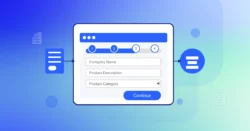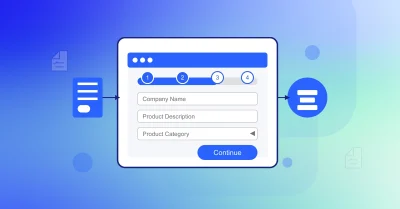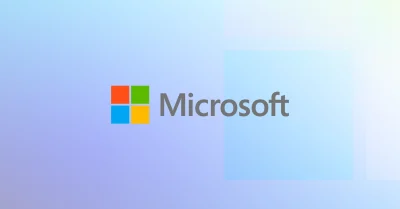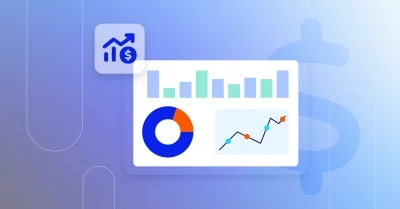What is an N-Tier Marketplace?
In today’s SaaS-driven landscape, businesses are constantly looking to expand their reach and grow revenue by connecting with effective partners and resellers. This is where the N-tier marketplace comes in—a powerful model for building a scalable and resilient network. But what exactly is an N-tier marketplace?
An N-tier (multi-tier) marketplace is a platform architecture that enables multiple layers of resellers or partners to sell a company’s products or services. Unlike traditional models, which may involve only direct distributors or agents, an N-tier marketplace supports various levels of resellers, each acting as a layer within a larger ecosystem. This setup allows companies to build extensive partner networks, with each tier able to engage its own sub-resellers, driving significant market expansion and flexibility.
For SaaS providers, this model offers a way to grow faster by entering new markets and unlocking opportunities through an expanded partner network. Through each additional layer of resellers, a company can reach more customers, explore new regions, and gain footholds in specific industries that may otherwise be challenging to access.
Let’s explore how an N-tier marketplace platform can transform a business’s growth potential, enabling seamless expansion, stronger partner relationships, and increased revenue opportunities.
Multi-tier Networks Scale Exponentially
For SaaS businesses seeking meaningful growth, a single-tier reseller approach often falls short of achieving the scale and market reach they’re aiming for. Enter the multi-tier reseller network, an approach that can exponentially expand a business’s reach by empowering value-added resellers (VARs) to build their own downstream networks.
By unlocking multiple layers of partners, SaaS companies can rapidly scale up without having to invest heavily in direct sales or support for every new customer. Let’s explore how this approach drives scalability, growth, and ultimately, revenue.
A multi-tier reseller network, by design, enables scalability through a cascade effect. Picture it as a branching network where each reseller has the potential to recruit their own channel partners or sub-resellers. This structure creates a multiplier effect; with each tier added, the market reach expands.
For SaaS providers, this layered model means they’re not just selling through one direct reseller but creating a self-propagating ecosystem that can continue to grow even without direct involvement from the primary SaaS business. It’s a strategy that naturally builds a far-reaching channel for distribution, one that can touch diverse markets and niche segments that would otherwise be hard to access.
A key element of multi-tier networks is the empowerment of each partner in the reseller network. In a traditional model, resellers are often limited in their ability to expand, but with a multi-tier approach, they’re encouraged to grow their own networks. This partner empowerment fuels growth from the ground up. By equipping resellers with effective tools, training, and marketing resources, SaaS companies can set their partners up for success and make it easier for them to onboard their own partners. This empowerment creates a ripple effect where each layer is motivated to drive sales, knowing they have the support and resources needed to succeed.
Another vital aspect is the ability to manage and support this extended network effectively. SaaS companies need a solid reseller program that provides clear guidelines, commission structures, and resources to keep everyone aligned. For instance, each reseller tier may need unique resources based on their proximity to the end customer. Top-tier partners might benefit from exclusive training or direct support from the SaaS company, while lower-tier partners could rely on self-service tools and robust online resources. A well-structured partner program keeps the entire reseller network running smoothly, providing consistency across every tier while enabling flexibility for each partner’s specific needs.
Revenue growth in a multi-tier setup is substantial, as each tier adds its contribution. Value-added resellers, in particular, can drive this growth by customizing SaaS offerings for niche markets, enhancing the appeal of the product, and creating a more personalized customer experience. These VARs offer more than just distribution; they bring a level of service that can significantly boost the value proposition of the SaaS solution in each specific segment. As a result, revenue can multiply across various sectors and customer types.
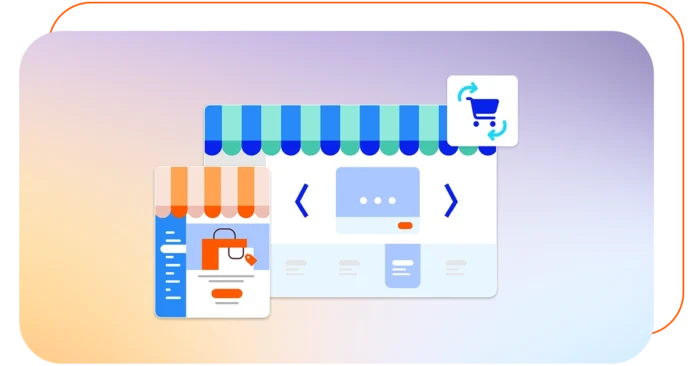
Reseller Autonomy + Branded Storefronts
In a thriving multi-tier B2B marketplace, reseller autonomy is key to fostering growth, engagement, and customer satisfaction. One powerful way to achieve this is by offering branded storefronts, also known as white-label marketplaces. These white-label solutions allow SaaS providers to give resellers full control over their branding, messaging, and customer experience, creating an experience that feels custom-made for each market or client base.
But what makes branded storefronts so effective, and how can they help SaaS businesses expand their reach?
A white-label marketplace offers resellers a unique opportunity: the ability to sell software under their own brand. This approach enables SaaS providers to empower their resellers with the tools they need to thrive independently. Resellers gain the flexibility to customize their storefronts to align with their brand identity, including unique logos, colors, and messaging that resonate with their audience. This white-label branded environment provides each reseller with a sense of ownership over the sales process, which in turn fuels their motivation to succeed.
When resellers can present a seamless, personalized experience that feels like an extension of their brand, it strengthens their relationship with customers and builds loyalty.
This autonomy allows resellers to create a tailor-made online environment for their customers, meeting market demands with a personalized approach that a one-size-fits-all solution simply can’t match. For example, a SaaS provider selling a cloud storage solution might work with resellers who specialize in specific industries.
By using a white-label marketplace, these resellers can position the product as an ideal solution for their niche, adding messaging and support resources that address the unique needs of their target audience. This customization goes beyond just aesthetics; it enables resellers to present software solutions as truly relevant to their customers, improving both customer acquisition and retention.
In addition to empowering resellers, branded storefronts offer significant advantages for SaaS providers as well. By enabling resellers to have full control over their branding and messaging, SaaS companies can focus on expanding the product reach without stretching their marketing resources thin. Each reseller acts as a brand ambassador, bringing new customers into the ecosystem in a way that is both authentic and customized.
Furthermore, this model supports the SaaS provider’s own brand by ensuring that every interaction within the reseller marketplace is high-quality, professional, and tailored to customer needs. By empowering resellers to deliver the right experience, SaaS providers effectively scale their influence and market reach.
Another benefit of this model is that it fosters a collaborative marketplace environment. Resellers are more motivated to engage and sell when they feel they’re building something that’s truly their own. They’re not just another intermediary; they become an integral part of a larger marketplace ecosystem, one that values their role and gives them the reseller tools they need to succeed. As resellers thrive within this model, the entire marketplace benefits, as increased reseller success translates directly to market expansion and revenue growth.
Curated Products and Promotions
A key advantage of using an N-tier marketplace lies in the ability to offer resellers curated products and promotions that are specially crafted for their unique needs.
By empowering resellers with tools like custom software bundles, tailored solutions, and flexible pricing, SaaS providers can support their resellers in delivering targeted and relevant solutions to their customers. This kind of enablement fosters deeper connections between the SaaS provider and their reseller network, creating a mutually beneficial environment that enhances performance and profitability across the board.
In an N-tier marketplace, SaaS providers can gather insights on each partner’s customer base, their preferences, and purchasing behavior. These insights make it possible to craft specific solutions that resonate with different types of resellers, allowing each partner to feel supported in offering something that fits their audience precisely. Instead of offering a “one-size-fits-all” product lineup, SaaS providers can deliver software bundles that are carefully selected for specific market needs. For instance, a provider may offer bundles for industry-focused resellers, such as cybersecurity or fintech, equipping them with relevant software features that meet the regulatory and operational requirements of those industries.
Custom pricing is another impactful way to support resellers in an N-tier marketplace. By offering pricing structures that cater to resellers’ individual business models, SaaS providers help these partners become more competitive.
For example, a small reseller may need a lower entry price or a more flexible payment schedule to get started, whereas a larger, established reseller might benefit from volume discounts or premium-tier pricing options. This flexibility in pricing empowers resellers to set themselves apart in their markets, making their offerings more attractive and accessible to their target audience. By allowing resellers to build pricing strategies that make sense for their customers, SaaS providers strengthen their partners’ chances of success while also driving their own revenue optimization.
Tailored solutions go hand-in-hand with custom pricing, enabling resellers to deliver the best fit for each customer. Within an N-tier ecosystem, resellers can work with SaaS providers to offer add-ons, specialized features, or complementary products that address specific customer pain points.
This degree of customization allows resellers to act as consultants rather than just vendors, positioning them as valuable partners in solving their customers’ unique challenges. When a reseller can confidently present a well-rounded, tailored solution, it not only improves the customer experience but also builds long-term loyalty, which is valuable for both the reseller and the SaaS provider.
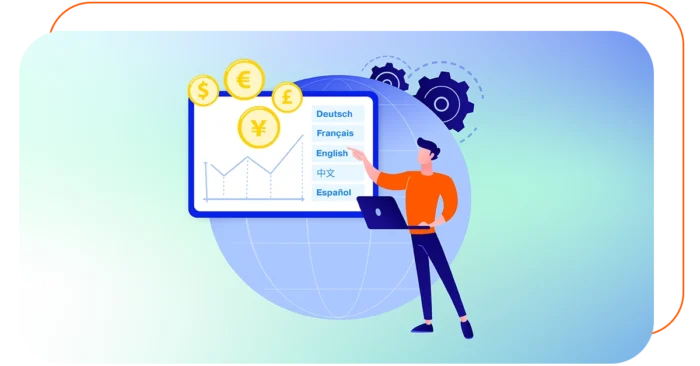
Multiple Language and Currency
In today’s interconnected world, SaaS businesses have the exciting opportunity to reach customers and resellers far beyond their local markets. However, scaling across borders requires more than just great software; it also involves providing a B2B marketplace experience that feels accessible and relevant to diverse audiences. That’s where multi-language and multi-currency support become essential for building a thriving reseller network within an N-tier marketplace.
By enabling resellers to conduct business in their preferred language and currency, SaaS providers can open doors to new markets, strengthen relationships, and ultimately, drive more revenue sharing.
For resellers, having access to a multi-language platform allows them to better engage with customers who prefer, or even require, communication in their native language. When a reseller can present products, features, and support resources in the local language, it demonstrates a level of commitment and understanding that goes a long way in building trust.
This localization ensures that no important details are lost in translation, reducing confusion and empowering resellers to deliver a more seamless and professional experience. In a multi-tier marketplace, these features enable SaaS providers to support their partners in delivering software that doesn’t feel foreign to end-users, making every interaction feel personal and relevant.
Multi-currency support is just as crucial, as it provides resellers with the flexibility to price products in a way that makes sense for their market.
For customers, seeing prices listed in their local currency makes the purchasing decision more transparent, helping to avoid the uncertainty of fluctuating exchange rates and additional conversion fees. This seemingly small adjustment has a significant impact on sales: customers are more likely to complete purchases when prices are straightforward and familiar. By enabling resellers to set competitive pricing in their currency of choice, SaaS providers can help their partners optimize pricing strategies and maximize conversions in each region.
Offering multi-language and multi-currency options also fosters a more supportive environment for resellers, making it easier for them to operate confidently within their own markets. These options aren’t just “nice to have”; they’re tools that empower resellers to reach new customer segments and create authentic connections with them.
SaaS providers who invest in these capabilities signal to their resellers that they are committed to their success, supporting them with the tools needed to grow. This investment, in turn, fuels reseller loyalty and strengthens the overall marketplace ecosystem.
Enable your resellers to sell more

Reseller Engagement and Retention
Building a reseller network is one thing—keeping it engaged and thriving over the long haul is quite another. This is where a multi-tier marketplace can be a game-changer for SaaS providers. By fostering an environment that prioritizes reseller engagement and retention, an N-tier marketplace not only attracts valuable partners but also keeps them invested and motivated to succeed.
With the right strategies and tools, SaaS providers can make sure their resellers feel like an integral part of the journey, enhancing loyalty and building a network that’s resilient and growth-oriented.
At the core of a multi-tier marketplace’s value is its capacity to foster connection and engagement among resellers. This isn’t just a platform for transactions; it’s an partner ecosystem that enables resellers to share best practices, access resources, and continuously learn.
By offering training materials, product updates, and ongoing support, SaaS providers show a commitment to their resellers’ success. When resellers feel equipped and informed, they’re more likely to actively engage with the platform and feel confident in promoting the SaaS provider’s offerings. This engagement not only boosts resellers’ confidence but also strengthens their overall loyalty to the provider.
Communication is another key factor in keeping resellers engaged and committed over time. In a multi-tier marketplace, SaaS providers can use dedicated channels to maintain open and consistent communication with resellers, whether through newsletters, regular check-ins, or virtual community events. These touchpoints create a sense of belonging and allow resellers to stay up-to-date on new features, changes, or industry insights.
When communication flows smoothly, resellers are more likely to feel connected to the provider’s vision and motivated to align with its goals. In turn, this connection fosters a collaborative spirit, where resellers not only sell but also actively contribute feedback that helps improve the platform for everyone.
Beyond communication, SaaS providers can also support long-term reseller retention by creating a roadmap for reseller growth. This could mean offering sales enablement tools and resources that allow resellers to expand their own capabilities, such as advanced analytics, customer management features, or targeted marketing support.
By showing resellers how they can grow their own businesses within the marketplace, SaaS providers help their partners see the long-term potential in staying aligned with the platform. When resellers have a clear path for growth and success, they’re much more likely to stick around, invest their efforts, and become advocates for the marketplace.




